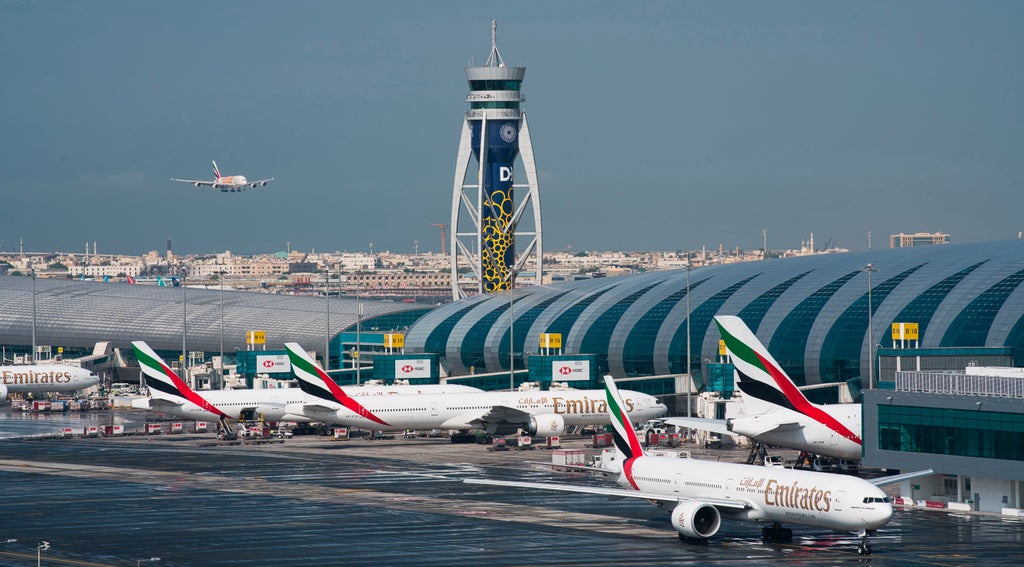
The president of Emirates, the Dubai-based airline that handles much of the air travel between Europe, the Middle East and Asia, reportedly only became aware on Tuesday morning that the US's 5G rollout on Wednesday could cause problems for planes.
Speaking with CNN, Sir Tim Clark, president of the airline, said that the situation was one of "the most delinquent, utterly irresponsible" things he had seen in his aviation career.
Because more powerful 5G bands can potentially affect the altimeter readings on certain aircraft - most notably the Boeing 777 - both domestic and international airlines pushed back the activation of 5G towers near airports. Numerous airports around the world cancelled flights into the US.
Emirates was no exception, cancelling flights to nine US destinations on Wednesday.
"I need to be as candid as I normally am, and say this is one of the most delinquent, utterly irresponsible issue subjects, call it what you like, I've seen in my aviation career because it involves organs of government, manufacturers, science, etc," he told CNN's Richard Quest.
"And you know, the notion that, for instance, the United States government should sell its franchise for all the frequencies for a large amount of money. Somebody should have told them at the time - that the risks and the dangers they placed in certain frequency uses around field, airfields, metropolitan fields that should have been done at the time."
In early 2021, the US auctioned mid-range 5G bandwidth to mobile phone companies for about $80bn. The "C band" as the range is known, has the potential to interfere with aircraft instruments.
Sir Tim said Emirates did not become aware of the specifics of the US 5G rollout and its potential impact on planes until Tuesday morning, only then learning "the extent that it was going to compromise the safety of operation of our aircraft and just about every other 777 operator to and from the United States and within the United States."
5G is already used across Europe, though the European Union has standardised the use of lower frequencies than those planned for use in the US.
South Korea uses slightly lower frequencies than those US companies aim to utilise and have had no reported incidents.
"Wireless carriers in nearly 40 countries throughout Europe and Asia now use the C band for 5G, with no reported effects on radio altimeters that operate in the same internationally designated 4.2-4.4 GHz band," CTIA, a U.S. wireless trade group, wrote in a filing with the FCC.
While Sir Tim seemed to have no opposition to the use of 5G bands, he did appear frustrated at the lack of communication between the US government, wireless carriers and the airlines.
"We were aware of a 5G issue. Okay. We are aware that everybody is trying to get 5G rolled out after all it's the super cool future of whatever it may be communication and information flow. We were not aware that the power of the antennas in the United States have been doubled compared to what's going on elsewhere," he said.
"We were not aware that the antenna themselves have been put into a vertical position rather than a slight slanting position, which then taken together compromise not only the radio altimeter systems but the flight control systems on the fly by wire aircraft. So on that basis we took that decision late last night to suspend all our services until we had clarity."







